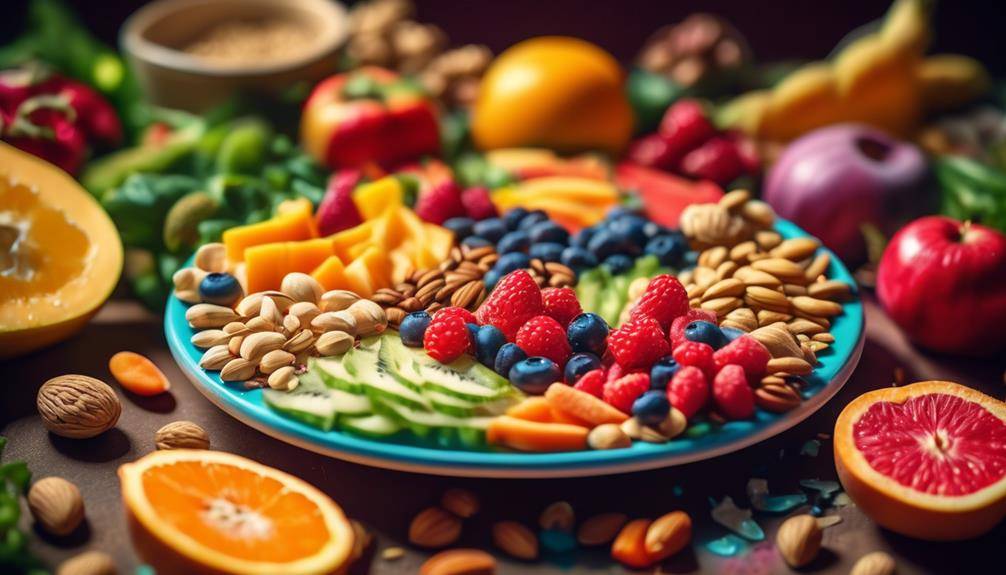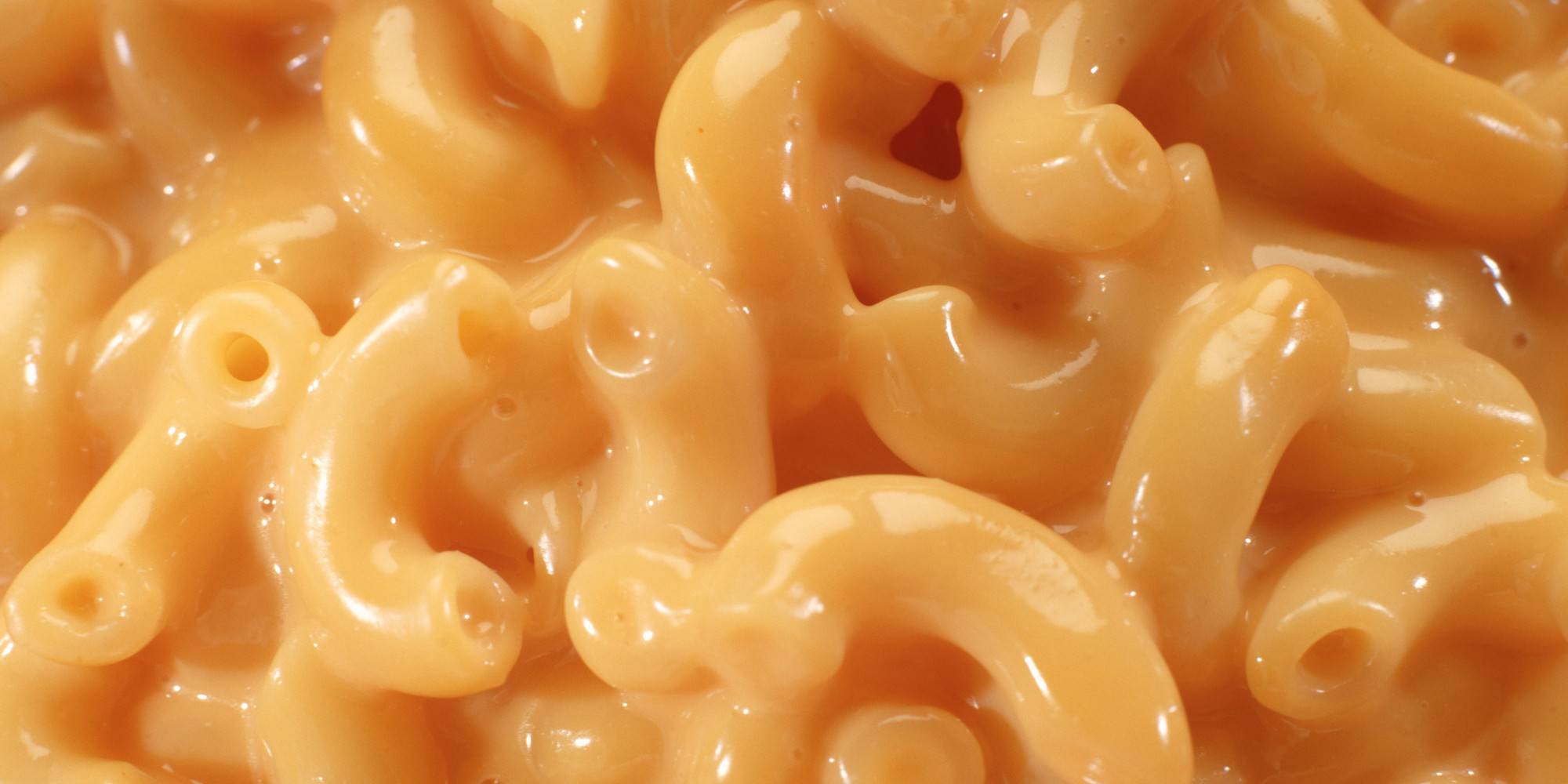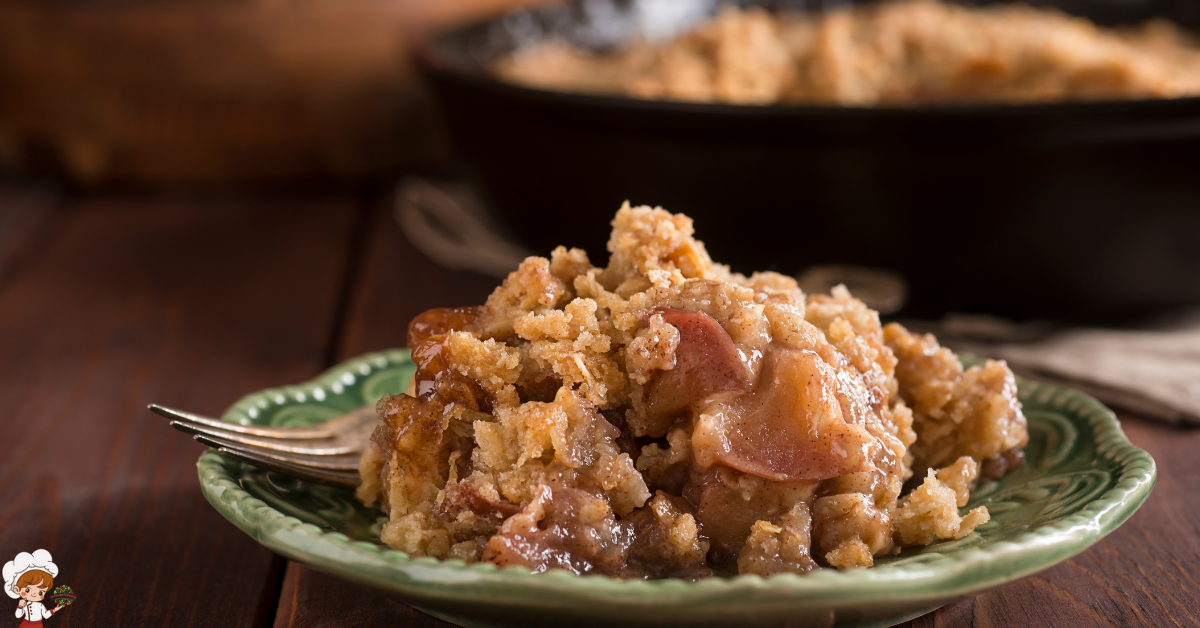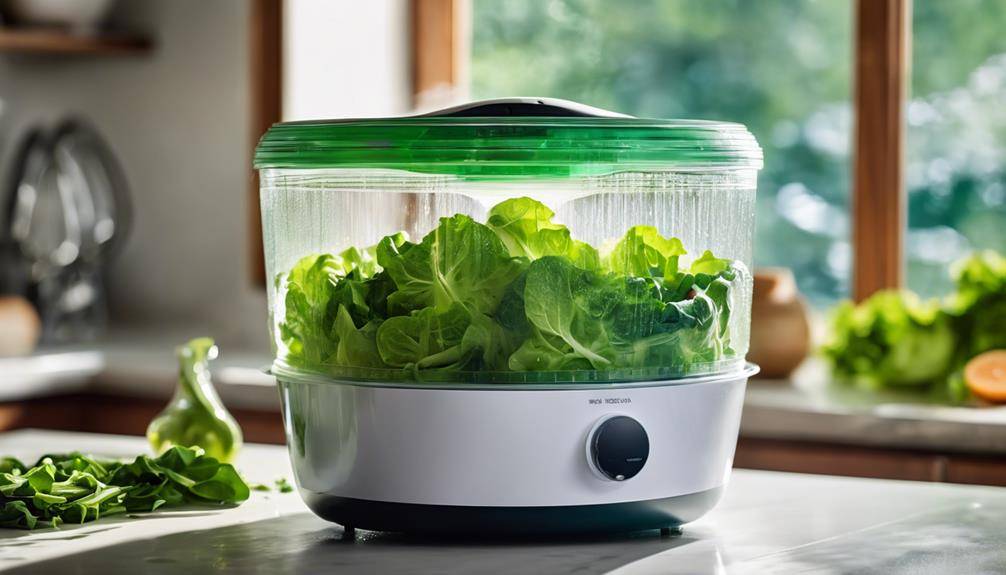The Best Gluten-Free Diet for Skin Health

The Best Gluten-Free Diet for Skin Health; Are you tired of dealing with stubborn skin issues that just won’t go away, no matter what you try? It’s time to consider the impact of your diet on your skin health. While it may sound like an exaggeration, the connection between gluten and skin health is a topic that has gained significant attention in recent years.
So, what exactly is the link between gluten and your skin? In this discussion, we will explore the impact of gluten intolerance on your skin, the common skin issues associated with gluten consumption, and the potential benefits of adopting a gluten-free diet for acne-prone skin. Get ready to uncover the secrets to achieving healthier, more radiant skin through dietary choices.
The Link Between Gluten and Skin Health
The link between gluten and skin health is a topic that has gained significant attention in recent years due to the growing awareness of gluten-related disorders and their potential impact on various aspects of health. While gluten-related disorders primarily affect the gastrointestinal tract, there is evidence to suggest that they can also have an impact on the skin. For individuals with gluten sensitivity or celiac disease, following a gluten-free diet may be beneficial not only for their overall health but also for their skin.
When it comes to skincare routines, opting for gluten-free products can be a wise choice for individuals with gluten-related disorders. Many skincare products, such as lotions, creams, and even cosmetics, contain gluten as a binding agent or filler. By using gluten-free skincare products, you can minimize the risk of gluten exposure through topical application and reduce the likelihood of any adverse skin reactions.
Moreover, adhering to a gluten-free diet may also have positive effects on aging skin. Some studies have suggested that gluten sensitivity can contribute to various skin conditions, such as dermatitis herpetiformis or eczema, which can accelerate the aging process. By eliminating gluten from your diet, you may reduce inflammation and oxidative stress, which are known to contribute to skin aging. Additionally, a gluten-free diet often encourages the consumption of nutrient-rich foods, such as fruits, vegetables, and lean proteins, which can promote skin health and delay the signs of aging.
Understanding Gluten Intolerance and Celiac Disease
Now it’s time to understand gluten intolerance and celiac disease. If you experience symptoms like bloating, diarrhea, or fatigue after consuming gluten, you may have gluten intolerance. On the other hand, celiac disease is an autoimmune condition where the ingestion of gluten triggers an immune response that damages the lining of the small intestine.
Gluten Intolerance Symptoms
If you’re experiencing symptoms such as digestive issues, fatigue, or skin problems, it may be worth considering the possibility of gluten intolerance or celiac disease. Gluten intolerance, also known as non-celiac gluten sensitivity, is a condition where the body has difficulty digesting gluten, a protein found in wheat, barley, and rye. Celiac disease, on the other hand, is an autoimmune disorder triggered by the ingestion of gluten.
Both conditions can cause similar symptoms, including bloating, diarrhea, constipation, headaches, and skin issues like rashes or dermatitis herpetiformis. Treatment for gluten intolerance involves following a gluten-free diet, which means avoiding foods that contain gluten. Gluten-free meal plans can help individuals manage their symptoms and improve their overall health. It is important to consult with a healthcare professional or registered dietitian for guidance on gluten intolerance treatment and creating a suitable gluten-free meal plan.
Managing Celiac Disease
If you suspect that you have gluten intolerance or celiac disease, understanding how to manage your condition is crucial for maintaining your skin health and overall well-being. Here are some tips to help you manage your celiac disease effectively:
- Consult a healthcare professional: Seek medical advice and get tested for celiac disease to confirm your diagnosis.
- – Managing dietary restrictions: Once diagnosed, it’s important to eliminate gluten completely from your diet. Avoid foods containing wheat, barley, and rye, and be cautious of hidden sources of gluten in processed foods.
- – Gluten-free meal planning: Plan your meals in advance to ensure a balanced and gluten-free diet. Include naturally gluten-free foods like fruits, vegetables, lean meats, and gluten-free grains like quinoa and rice.
Common Skin Issues Associated With Gluten Consumption
If you’ve been experiencing skin inflammation and have been unable to identify the cause, it’s possible that gluten consumption could be to blame. Gluten intolerance can lead to skin issues such as dermatitis herpetiformis, which is characterized by itchy and blistering rashes. Additionally, some individuals may notice an increase in acne breakouts when they consume gluten. If you suspect that gluten might be causing your skin issues, it may be worth considering a gluten-free diet to see if your symptoms improve.
Skin Inflammation Due to Gluten
Skin inflammation due to gluten can cause a range of common skin issues when consumed. If you suffer from eczema, you may have noticed that your symptoms worsen after consuming gluten. This is because gluten can trigger an immune response in the body, leading to inflammation and flare-ups of skin conditions like eczema. Following a gluten-free diet can provide relief from eczema by reducing inflammation and soothing the skin.
Additionally, gluten consumption can also lead to skin redness and irritation in individuals with gluten sensitivity. By eliminating gluten from your diet, you can reduce skin redness and improve your overall skin health. Consider consulting with a healthcare professional or dermatologist to explore the benefits of a gluten-free diet for your skin.
Acne and Gluten Intolerance
Consuming gluten can not only trigger skin inflammation and worsen conditions like eczema, but it can also contribute to another common skin issue: acne. Acne is a skin condition characterized by the presence of pimples, blackheads, and whiteheads. Although the exact cause of acne is still not fully understood, research suggests that hormonal imbalances play a significant role in its development.
Gluten intolerance, also known as celiac disease, can lead to hormonal imbalances in the body. This can potentially exacerbate acne symptoms and make it harder to treat. Adopting a gluten-free diet may help improve hormonal balance and reduce acne breakouts.
In addition to eliminating gluten, it is also important to focus on a well-balanced diet that includes plenty of fruits, vegetables, lean proteins, and healthy fats. This can help support overall skin health and aid in acne treatment.
If you suspect that gluten intolerance is contributing to your acne, it is recommended to consult with a healthcare professional or a registered dietitian who can provide guidance on adopting a gluten-free diet and managing hormonal imbalances for clearer skin.
How Gluten Triggers Inflammation in the Skin
Gluten, a protein found in wheat, barley, and rye, has been shown to trigger inflammation in the skin. This inflammation can contribute to various skin conditions, including eczema and psoriasis. Understanding how gluten triggers inflammation in the skin can help you make informed decisions about your diet and potentially improve your skin health.
Here are two ways gluten can trigger inflammation in the skin:
- Immune System Response: When gluten is ingested by individuals with gluten intolerance or sensitivity, it can activate an immune response in the body. This immune response can lead to inflammation in various organs, including the skin. Inflammation in the skin can manifest as redness, itching, and irritation, exacerbating conditions like eczema and psoriasis.
- Leaky Gut Syndrome: Gluten can contribute to a condition called leaky gut syndrome, where the lining of the intestines becomes permeable. When the gut lining is compromised, it allows toxins and undigested food particles, including gluten, to leak into the bloodstream. This triggers an immune response and inflammation throughout the body, including the skin.
Adopting a gluten-free diet can be beneficial for both eczema management and psoriasis treatment. By eliminating gluten from your diet, you can help reduce the inflammation that contributes to these skin conditions. It is important to consult with a healthcare professional or dermatologist before starting a gluten-free diet to ensure you are meeting your nutritional needs and to rule out any other underlying causes for your skin issues.
The Benefits of a Gluten-Free Diet for Acne-prone Skin
If you struggle with acne-prone skin, adopting a gluten-free diet may offer you some relief. Research suggests that eliminating gluten from your diet can lead to clearer skin by reducing inflammation and acne breakouts. By avoiding gluten-containing foods, you can potentially improve the overall health and appearance of your skin.
Clearer Skin With Gluten-Free
To improve the clarity and health of your acne-prone skin, consider incorporating a gluten-free diet into your lifestyle. While more research is needed to fully understand the relationship between gluten and acne, some studies suggest that eliminating gluten from your diet may help improve the condition of your skin. Here are a few potential benefits of a gluten-free diet for acne-prone skin:
- Reduced hormonal acne: Hormonal imbalances can contribute to acne breakouts. Some individuals find that a gluten-free diet helps regulate their hormones, leading to fewer acne flare-ups.
- Eczema relief: Gluten sensitivity can trigger inflammatory responses in the body, including eczema. By eliminating gluten, you may experience relief from eczema symptoms, such as itching and redness.
Reducing Acne Inflammation
Incorporating a gluten-free diet into your lifestyle can help reduce acne inflammation and improve the overall health of your skin. Acne is a common skin condition that affects many people, and it is often accompanied by inflammation. Research suggests that certain dietary changes, such as eliminating gluten, can have a positive impact on reducing inflammation and improving acne symptoms.
Gluten is a protein found in wheat, barley, and rye, and it can trigger an immune response in some individuals. This immune response can lead to inflammation throughout the body, including the skin. By eliminating gluten from your diet, you may be able to reduce this inflammation and subsequently reduce acne breakouts.
It is important to note that not everyone will see the same results from a gluten-free diet. Acne can have various underlying causes, and for some individuals, gluten may not be a contributing factor. However, for those who are sensitive to gluten or have been diagnosed with celiac disease, eliminating gluten can be beneficial for reducing inflammation and improving acne-prone skin.
In addition to going gluten-free, it is also important to focus on overall healthy eating habits. This includes consuming a balanced diet rich in fruits, vegetables, lean proteins, and healthy fats. These dietary changes can help support clear and healthy skin, in addition to reducing inflammation.
While a gluten-free diet may not be a solution for everyone with acne, it can be a helpful tool for those who are sensitive to gluten or have celiac disease. If you suspect that gluten may be contributing to your acne inflammation, it is recommended to consult with a healthcare professional or a registered dietitian who can provide personalized guidance and support.
Alleviating Eczema Through a Gluten-Free Lifestyle
Alleviate your eczema symptoms by adopting a gluten-free lifestyle. Eczema, also known as atopic dermatitis, is a chronic skin condition that causes red, itchy, and inflamed patches on the skin. While there is no cure for eczema, managing the symptoms is crucial to improving your quality of life. Research suggests that a gluten-free lifestyle may help alleviate eczema symptoms for some individuals. Here’s how a gluten-free diet can benefit your skin health:
- Reducing Inflammation: Eczema is characterized by inflammation in the skin. Gluten has been found to trigger an immune response in some individuals, leading to increased inflammation. By eliminating gluten from your diet, you can potentially reduce inflammation and minimize eczema flare-ups.
- Improving Gut Health: There is a strong connection between gut health and skin health. Gluten can disrupt the gut barrier, leading to increased permeability and allowing harmful substances to enter the bloodstream. This can trigger an immune response and contribute to skin inflammation. By adopting a gluten-free lifestyle, you can support a healthy gut microbiome and reduce the risk of gut-related issues that may worsen eczema.
- Supporting Nutrient Intake: Gluten-containing grains, such as wheat, barley, and rye, are often the main source of carbohydrates in the diet. By eliminating gluten, you may be prompted to explore alternative nutrient-dense grains, such as quinoa, buckwheat, and millet. These grains provide essential vitamins, minerals, and antioxidants that can support overall skin health.
While a gluten-free lifestyle may be beneficial for some individuals with eczema, it is important to consult with a healthcare professional or a registered dietitian before making any significant dietary changes. They can help you determine if a gluten-free diet is suitable for your specific condition and provide guidance on how to maintain a balanced and nutritious eating plan. Remember, managing eczema involves a holistic approach that includes proper skincare, stress management, and a healthy lifestyle.
Gluten-Free Diet for Soothing Dermatitis Symptoms
Consider adopting a gluten-free diet to help soothe symptoms of dermatitis. Dermatitis is a common skin condition characterized by redness, inflammation, and itching. While there are various causes of dermatitis, research suggests that a gluten-free diet may be beneficial in reducing redness and promoting healing.
Gluten is a protein found in wheat, barley, and rye. For individuals with dermatitis, gluten can potentially trigger an immune response, leading to inflammation and exacerbation of symptoms. By eliminating gluten from your diet, you may experience a reduction in redness and irritation.
Several studies have shown a link between gluten consumption and dermatitis symptoms. In one study published in the Journal of Dermatological Treatment, participants with dermatitis who followed a gluten-free diet experienced a significant improvement in their symptoms. Another study published in the Journal of the European Academy of Dermatology and Venereology found that individuals with dermatitis who adhered to a gluten-free diet had reduced severity and duration of flare-ups.
A gluten-free diet focuses on consuming foods that are naturally gluten-free, such as fruits, vegetables, lean meats, fish, nuts, and seeds. It involves avoiding foods that contain gluten, such as bread, pasta, cereals, and processed foods that may contain hidden sources of gluten. It is important to read food labels carefully and choose gluten-free alternatives.
While adopting a gluten-free diet may help soothe dermatitis symptoms, it is essential to consult with a healthcare professional before making any significant dietary changes. They can provide guidance and ensure that you are meeting your nutritional needs while avoiding gluten. Additionally, it is important to note that a gluten-free diet may not be suitable for everyone, and further research is needed to fully understand its impact on dermatitis.
Gluten’s Impact on Psoriasis and Rosacea
Research suggests that gluten may also have an impact on psoriasis and rosacea, two common skin conditions. While more studies are needed to fully understand the relationship between gluten and these conditions, some evidence shows that a gluten-free diet may help alleviate symptoms and improve skin health.
Here are two ways a gluten-free diet can potentially benefit psoriasis and rosacea:
- Reduced inflammation: Psoriasis and rosacea are both inflammatory skin conditions. Gluten, a protein found in wheat, barley, and rye, can trigger an immune response in some individuals. This immune response can lead to chronic inflammation, which may worsen the symptoms of psoriasis and rosacea. By eliminating gluten from your diet, you may be able to reduce inflammation and potentially alleviate these skin conditions.
- Improved gut health: There is a growing body of research linking gut health to skin health. Some studies have found that individuals with psoriasis and rosacea have a higher prevalence of certain gut conditions, such as leaky gut syndrome and small intestinal bacterial overgrowth (SIBO). Gluten has been shown to contribute to gut inflammation and damage in individuals with celiac disease and non-celiac gluten sensitivity. By following a gluten-free diet, you may help improve your gut health, which in turn can positively impact your skin.
It is important to note that while a gluten-free diet may be beneficial for some individuals with psoriasis and rosacea, it may not be a cure-all. It is always best to consult with a healthcare professional or a registered dietitian before making any major dietary changes. Additionally, practicing good skincare habits, such as moisturizing regularly and avoiding triggers specific to your condition, can also help manage symptoms and promote healthy skin.
Gluten-Free Foods to Promote Healthy Skin
What are some gluten-free foods that can promote healthy skin? Following a gluten-free diet can have numerous benefits for your skin health. By eliminating gluten, you can reduce inflammation and improve the overall appearance of your skin. Here are some gluten-free foods that you can incorporate into your diet to promote healthy skin:
- Fruits and Vegetables: These are rich in vitamins, minerals, and antioxidants that nourish your skin from within. Include a variety of colorful fruits and vegetables like berries, leafy greens, carrots, and bell peppers in your meals.
- Lean Proteins: Opt for gluten-free protein sources like fish, poultry, beans, and lentils. These foods provide essential amino acids that support collagen production, which is crucial for maintaining skin elasticity.
- Whole Grains: While a gluten-free diet eliminates wheat, barley, and rye, you can still enjoy gluten-free grains like quinoa, brown rice, and millet. These whole grains provide fiber, vitamins, and minerals that contribute to healthy skin.
- Healthy Fats: Include sources of healthy fats such as avocados, nuts, and seeds in your diet. These foods are rich in omega-3 fatty acids, which help to keep your skin moisturized and supple.
- Dairy Alternatives: If you’re lactose intolerant or prefer to avoid dairy, choose gluten-free dairy alternatives like almond milk, coconut milk, or soy milk. These options can provide essential nutrients without the potential inflammatory effects of gluten.
Incorporating these gluten-free foods into your diet can not only promote healthy skin but also improve your overall well-being. Experiment with gluten-free recipes that incorporate these ingredients to enjoy a diverse and nourishing diet. Remember to consult with a healthcare professional or a registered dietitian before making any significant dietary changes.
The Role of Nutrients in Gluten-Free Skin Health
To support gluten-free skin health, it is important to understand the role of various nutrients in maintaining the overall appearance and well-being of your skin. A well-balanced diet rich in essential nutrients can help alleviate gluten intolerance symptoms and promote healthy skin. Here are some key nutrients and their roles in gluten-free skin health:
- Omega-3 fatty acids: These healthy fats have anti-inflammatory properties that can help reduce redness, swelling, and irritation in the skin. They can be found in foods such as fatty fish (salmon, mackerel), walnuts, chia seeds, and flaxseeds.
- Antioxidants: These powerful compounds help protect the skin from damage caused by free radicals, which can lead to premature aging and skin problems. Foods rich in antioxidants include berries (blueberries, strawberries), dark leafy greens (spinach, kale), and colorful vegetables (carrots, tomatoes).
- Vitamin C: This vitamin plays a key role in collagen production, which is essential for skin elasticity and firmness. Citrus fruits (oranges, lemons), bell peppers, and broccoli are great sources of vitamin C.
- Vitamin E: This vitamin helps protect the skin from oxidative stress and supports skin healing. It can be found in foods like nuts (almonds, sunflower seeds), avocados, and spinach.
- Zinc: This mineral is involved in skin cell renewal and can help maintain a healthy complexion. Good sources of zinc include seafood (oysters, crab), lean meats, and legumes.
- B vitamins: B vitamins, particularly biotin (B7) and niacin (B3), contribute to healthy skin by supporting cell growth and repair. Eggs, nuts, whole grains, and legumes are excellent sources of B vitamins.
Tips for Successfully Adopting a Gluten-Free Diet
When adopting a gluten-free diet, it is important to follow these practical tips to successfully navigate the transition and maintain a healthy lifestyle. Transitioning to a gluten-free diet can be challenging, but with the right approach, it can become a seamless part of your life. One of the first challenges you may face is meal planning. To overcome this, start by familiarizing yourself with naturally gluten-free foods such as fruits, vegetables, lean meats, and gluten-free grains like quinoa and rice. These will form the foundation of your meals.
Next, create a meal plan for the week ahead. This will help you stay organized and ensure that you have gluten-free options available. Consider batch cooking and freezing meals, so you always have something on hand when you’re short on time. Additionally, make a list of gluten-free staples to keep in your pantry, such as gluten-free flours, pasta, and snacks. This will make it easier to whip up gluten-free meals or snacks whenever you need them.
Another challenge you may encounter is dining out. To navigate this successfully, research gluten-free options at restaurants beforehand. Many establishments now offer gluten-free menus, or you can call ahead to inquire about their gluten-free options. When ordering, be sure to communicate your dietary needs to the server to avoid cross-contamination.
Lastly, be mindful of hidden sources of gluten. Gluten can be found in unexpected places such as sauces, gravies, and condiments. Read ingredient labels carefully and look for gluten-free certifications to ensure that the products you’re using are safe.
Gluten-Free Skincare Products for Enhanced Skin Health
When it comes to maintaining healthy skin on a gluten-free diet, incorporating gluten-free skincare products can play a vital role. Gluten-free skincare products are specifically formulated without gluten-containing ingredients, making them suitable for individuals who have celiac disease or gluten sensitivity. By using these products, you can ensure that your skincare routine aligns with your gluten-free lifestyle and promote enhanced skin health.
Here are two key benefits of incorporating gluten-free skincare products into your routine:
- Minimizes the risk of gluten contamination: Gluten can be found in various skincare and beauty products, such as moisturizers, cleansers, and makeup. Using gluten-free beauty products reduces the risk of accidental ingestion or skin contact with gluten, which can trigger adverse reactions for those with gluten sensitivity or celiac disease.
- Supports healthy skin barrier: The skin serves as a protective barrier against environmental stressors and moisture loss. Gluten-free skincare products often contain beneficial ingredients like antioxidants, vitamins, and natural extracts that nourish and strengthen the skin barrier. This can help improve skin hydration, reduce inflammation, and promote overall skin health.
When selecting gluten-free skincare products, look for labels that explicitly state they are gluten-free or free from gluten-containing ingredients. Additionally, consider consulting with a dermatologist to identify specific products that suit your skin type and address your skin concerns.
Incorporating gluten-free skincare products into your routine can help maintain healthy skin while following a gluten-free diet. By choosing gluten-free beauty products, you can minimize the risk of gluten contamination and support a healthy skin barrier. Remember to prioritize your skin’s health and consult with a professional to find the best gluten-free skincare options for you.
Monitor Your Progress: Tracking Skin Improvements
Consider tracking the improvements in your skin as you incorporate gluten-free skincare products into your routine. Monitoring progress is essential to understand the benefits of your new skincare regimen and make any necessary adjustments along the way. By keeping track of changes in your skin, you can identify patterns, determine what works best for you, and ensure that your efforts are yielding the desired results.
Tracking improvements allows you to objectively evaluate the effectiveness of gluten-free skincare products. As you start using these products, take note of any changes you observe in your skin. Are you experiencing fewer breakouts? Is your skin feeling smoother and more hydrated? Are any skin conditions, such as dermatitis or eczema, improving? By documenting these changes, you can establish a baseline and track the progress over time.
Benefits of monitoring progress extend beyond mere observation. Tracking improvements can help you identify any triggers or allergies that may be affecting your skin. If you notice a sudden flare-up or negative reaction, reviewing your progress log can help you identify the potential cause. This information can be valuable when seeking professional advice or making adjustments to your skincare routine.
Additionally, tracking improvements can provide motivation and encouragement. Seeing the positive changes in your skin can boost your confidence and reinforce your commitment to a gluten-free skincare routine. It can also help you stay consistent and disciplined in your approach, knowing that your efforts are yielding tangible results.
To track your progress effectively, consider taking photographs of your skin at regular intervals. This visual documentation can provide a clear record of any improvements or changes. You can also keep a journal, noting any observations, experiences, or product changes that may be relevant to your skin’s condition.
Frequently Asked Questions: The Best Gluten-Free Diet for Skin Health
What Are the Symptoms of Gluten Intolerance or Celiac Disease That Can Affect the Skin?
If you have gluten intolerance or celiac disease, your skin may show symptoms such as rashes, itching, or blisters. These skin issues can be caused by an immune reaction triggered by gluten consumption.
Can a Gluten-Free Diet Help With Other Skin Issues Besides Acne, Eczema, Dermatitis, Psoriasis, and Rosacea?
A gluten-free diet can improve overall skin health by reducing inflammation and irritation. Gluten may have some impact on the appearance of the skin, so eliminating it from your diet could potentially benefit your skin.
Are There Any Gluten-Free Foods That Can Specifically Target and Improve Certain Skin Conditions?
A gluten-free diet can potentially benefit certain skin conditions. Foods like fruits, vegetables, and lean proteins can help improve aging and dry skin. It’s important to consult with a healthcare professional for personalized advice.
How Long Does It Typically Take to See Improvements in the Skin After Adopting a Gluten-Free Diet?
Typically, you can start seeing improvements in your skin appearance within a few weeks of adopting a gluten-free diet. However, the timeframe for visible changes may vary depending on individual factors and the specific skin condition you’re dealing with.
Are There Any Specific Skincare Products That Are Gluten-Free and Can Enhance the Benefits of a Gluten-Free Diet for Skin Health?
You can maximize the benefits of a gluten-free diet for your skin health by using skincare products that are gluten-free. Look for labels that specifically mention “gluten-free” to ensure you’re making the best choices for your skin.
Conclusion
In conclusion, adopting a gluten-free diet may have significant benefits for skin health. By understanding the link between gluten intolerance and common skin issues, such as acne, individuals can make informed choices to improve their skin. Additionally, focusing on nutrient-rich foods and using gluten-free skincare products can further enhance skin health. It is important to monitor progress and track improvements to determine the effectiveness of a gluten-free diet for individual skin concerns. Overall, a gluten-free diet can be a practical and evidence-based approach to promoting healthier skin.








